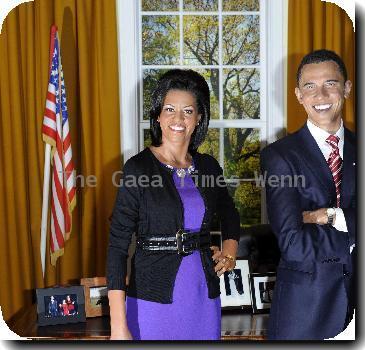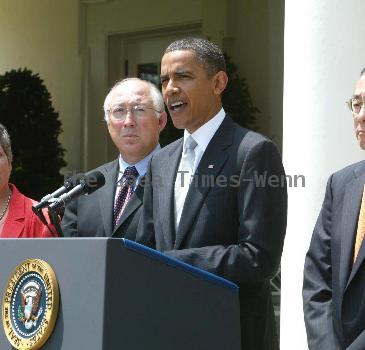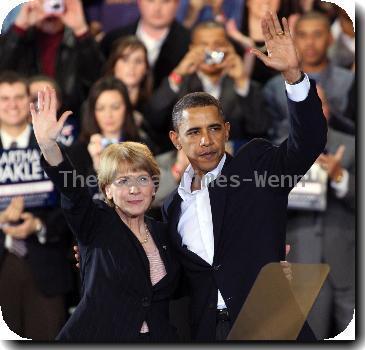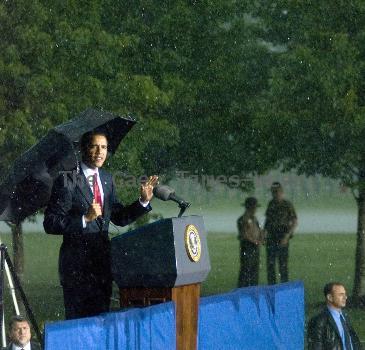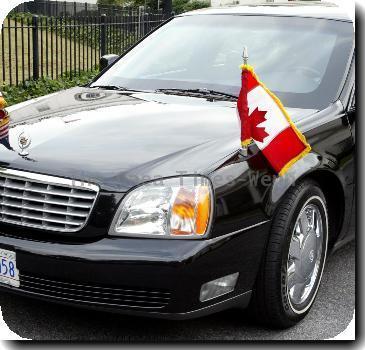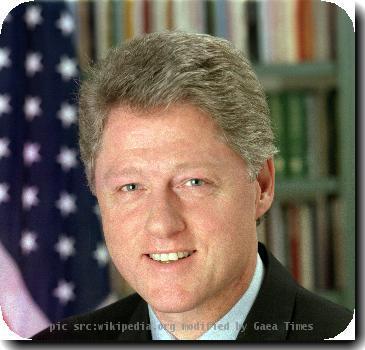Clinton seeks human rights progress in Vietnam, vows more cooperation on Agent Orange impact
By APThursday, July 22, 2010
Clinton seeks human rights progress in Vietnam
HANOI, Vietnam — U.S. Secretary of State Hillary Rodham Clinton on Thursday urged Vietnam to improve its human rights record but also pledged greater cooperation in dealing with the lingering impact of Agent Orange from the Vietnam War.
In Hanoi to mark the 15th anniversary of normalized U.S.-Vietnam relations, Clinton praised her hosts for their “extraordinary, dynamic population” and said it “is on the path to becoming a great nation with an unlimited potential.” To fulfill that promise, though, she said the communist government must ease curbs on free speech and political activity.
“That is among the reasons we expressed concern about arrest and conviction of people for peaceful dissent, attacks on religious groups and curbs on Internet freedom,” she said in her opening comments at a joint news conference with Vietnamese Foreign Minister Pham Gia Khiem.
Ahead of her visit, human rights groups and U.S. lawmakers called on Clinton to raise the cases of jailed imprisoned dissidents, democratic and religious activists and bloggers with Vietnamese officials.
“The government of Vietnam’s desire to reap the benefits of the global economy must be matched by efforts to respect comprehensive human rights,” a bipartisan group of 19 members of Congress wrote to Clinton on July 15.
Clinton did not say if she had raised those cases but said the Obama administration wanted to work with Vietnam “to support efforts to pursue reforms and protect basic rights and freedoms.”
But how much Vietnam is willing to cooperate on that was unclear as Khiem said he thought the subject is “a difference between Vietnam and the U.S.”
“Human rights have common values but … it depends a lot on the cultural and historical background,” he said. He noted that President Barack Obama has said human rights values shouldn’t be imposed from the outside.
Later, at a lunch hosted by the local American Chamber of Commerce, Clinton raised human rights again, calling it a “profound difference” between the U.S. and Vietnam even as trade and commerce have increased exponentially since relations were normalized in 1995, during her husband’s administration.
“It is true that profound differences exist, particularly over the question of political freedoms,” she told the audience. “The United States will continue to urge Vietnam to strengthen its commitment to human rights and give its people an even greater say over the direction of their own lives.”
At the same time, Clinton said the U.S. does not see its relationship with Vietnam as rooted in differences or in memories of the past.
“We have learned to see each other not as former enemies but as actual and potential partners, colleagues and friends,” she said. “We will continue to choose engagement and cooperation over escalation and division.”
Clinton recalled her first visit to Vietnam in 2000, when she accompanied then-President Bill Clinton on a trip shortly before he left office. That trip was the first by a sitting U.S. president to Vietnam since the war ended in 1975.
She said they had not known what to expect but were overwhelmed by the friendly welcome they received from the Vietnamese people. “Everywhere we went we felt the warmth and hospitality of the Vietnamese people. For us, it had a profound impact,” she said.
In her comments with Khiem, Clinton also promised to continue working with Vietnam on the consequences of Agent Orange. The U.S. military sprayed roughly 11 million gallons of the defoliant over large swaths of southern Vietnam between 1962 and 1971. Dioxin, a toxic chemical used in the herbicide, has been linked to cancers, birth defects and other ailments.
Vietnam says as many as 4 million of its citizens were exposed to the herbicide and as many as 3 million have suffered illnesses caused by it. A joint panel of U.S. and Vietnamese policymakers, citizens and scientists has urged Washington and other donors to provide $30 million annually over 10 years to clean up sites still contaminated by dioxin.
Clinton said she and Khiem had discussed “the concern that both Vietnam and the United States have about Agent Orange and the consequences it produced in the people here.”
“We have been working with Vietnam for about nine years to try to remedy the effects of Agent Orange,” Clinton said. She promised to “increase our cooperation and make even greater progress together.”
Tags: Asia, Barack Obama, Bill Clinton, East Asia, Hanoi, North America, North Korea, Southeast Asia, United States, Vietnam


